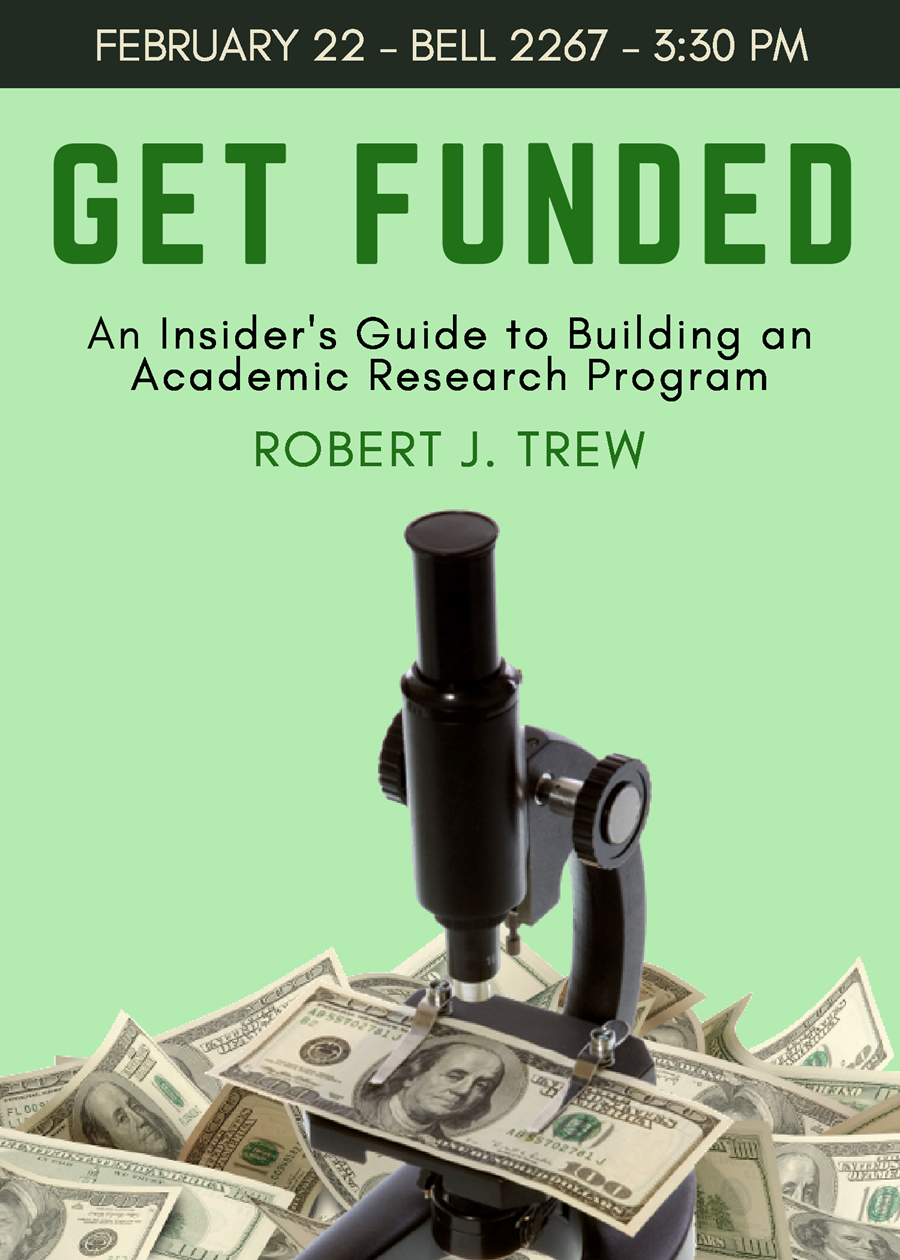Robert Trew, author of the book "Get Funded: An Insider's Guide to Building an Academic Research Program," will hold a seminar for faculty interested in obtaining external financial funding for research activities and the support of graduate students.
The seminar will be at 3:30 p.m. Feb. 22 in Bell Engineering 2267.
From Trew:
Are you interested in an academic faculty career, or have you recently become a university professor? Getting started in an academic career is a challenging task. It's rare for a new faculty member to be provided with all the details necessary to establish a successful career, and an institution's expectations of a new faculty member can be vague.
For instance, as a new faculty member you will be expected to teach, participate in 'service' activities, which initially means to serve on various committees, and, most importantly, engage in research. Without a doubt, one of the most difficult and challenging tasks will be to obtain external financial support for your research activities, and to recruit and financially support students. This never-ending task will exist throughout your academic career, but exactly how to go about this important task is rarely addressed in detail.
Fortunately, there are a variety of government, industrial, and foundation sources that provide financial support for academic research. Unfortunately, the financial resources that are available are not increasing as rapidly as the number of researchers seeking the funds. Hit rates for many proposal competitions are, in general, decreasing and the task grows more difficult each year; particularly in times when funding agency budgets either remain constant, or actually decrease. Yet, in spite of the difficulties, many faculty researchers are successful in obtaining research funds and building a thriving academic research program.
How is this success achieved? The process is challenging, but by following a number of basic principles you can significantly improve the odds of successfully obtaining funding. First, it's necessary to learn how to identify and communicate with potential sources to provide support funds for your research topic area. It's also important to understand agency budgets and which ones actually have funding available at a given time. This information is not often readily available, but can be obtained by employing skilled search techniques, and by asking the right questions.
Next, you will have to employ a few basic principles relative to working with Research Program Officers. Is personal contact important? The answer depends upon the agency, but for most funding agencies, the answer is a definite 'yes'. So, how do you make personal contact with an appropriate Program Manager? Learning a few basic principles will simplify and enhance this process. This talk will address these issues in detail. Methods for identifying and communicating with research Program Managers and Directors will be discussed, along with techniques to interest them in your research. Other related subjects, including when to submit white papers and proposals, and regulations related to academic research will be addressed.
About the Speaker: Robert Trew received his doctorate in electrical engineering from the University of Michigan in 1975 and currently serves as the Alton and Mildred Lancaster Distinguished Professor of Electrical and Computer Engineering at North Carolina State University. Trew's experience in research funding comes from his service as the Division Director of Electrical, Communications and Cyber Systems at the National Science Foundation, and the Director of Research for the U.S. Department of Defense, where he managed an annual research budget of $1.3 billion.
Location Information:
Bell Engineering Center, Room: 2267
800 W. Dickson St.
Fayetteville, AR 72701
Topics
Contacts
Samir El-Ghazaly, distinguished professor
Electrical Engineering
479-575-6048,
Sierra Mendoza, multimedia communications specialist
Electrical Engineering
479-575-4037,
